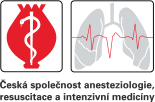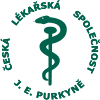Anesteziologie a intenzivní medicína, 2011 (vol. 22), issue 3
Zajištění dýchacích cest v roce 2011 aneb Přežije klasická laryngoskopie?Editorial
Michálek Pavel
Anest. intenziv. Med. 2011;22(3):135-136 
Premedication with etoricoxib before tonsillectomyAnaesthesiology - Original Paper
Leštianský Boris, Hakl Marek, Pešlová Marie, Veselá Vladimíra, Pavlík Tomáš, Kostřica Roman
Anest. intenziv. Med. 2011;22(3):137-145 
Objective:The goal of the study was to determine the analgesic effect of etoricoxib administered before tonsillectomy. Design:Interdisciplinary, prospective, randomised clinical trial. Setting:ICU, University Hospital. Materials and methods:The study included adult ASA I and II patients undergoing simple tonsillectomy. The exclusion criteria included a general contraindication to cyclooxygenase-2 (COX-2) inhibitors. The surgical procedure was performed under general anaesthesia with orotracheal intubation. Total 75 patients were randomised into two groups, etoricoxib (n = 38) and control (n =...
Intraosseous access to the vascular system for orthotopic liver transplantationAnaesthesiology - Case Reports
Píza Petr, Ročeň Milan, Fraňková Soňa, Kieslichová Eva
Anest. intenziv. Med. 2011;22(3):146-148 
Using intraosseous access for application of fluids and drugs is suitable not only in prehospital and emergency care, but also in major abdominal surgery in patients with occluded vascular access in the area of the superior vena cava. This case report describes the use of alternative vascular access for administration of fluids and drugs during orthotopic liver transplantation.
A conceptual ideal supraglottic airwayAnaesthesiology - Review articles
Miller M. Donald
Anest. intenziv. Med. 2011;22(3):149-152 
The single most important factor motivating research and development of SGAs is the associated risks of intubating patients with a tracheal tube. Predictable airway injury and the greater side-effects in the use of tracheal tubes is putting pressure on favouring SGAs over tracheal tube anaesthesia. In the future, the ability to minimize side-effects while obtaining better quality of seal in an SGA may determine the extent to which tracheal tube anaesthesia becomes a practise that will be limited to patients with full stomachs and special requirements such as thoracic anaesthesia.The factors that influence safety as well as the various compromises...
Pitfalls of postoperative care following carotid artery surgeryReview Article
Michálek Pavel, Stern Michael, Stříteský Martin, Šedivý Petr
Anest. intenziv. Med. 2011;22(3):153-158 
Carotid endarterectomy is one of the most frequent vascular surgery procedures worldwide. The postoperative course is mostly uncomplicated. Neurological complications may manifest as a cerebral stroke, hyperperfusion syndrome or, rarely, as convulsions. Postoperative cardiovascular instability that may occur includes hypertension or less often hypotension and cardiac dysrhythmias. Acute myocardial ischaemia is seen mostly in patients with ischaemic heart disease. Other complications include postoperative wound haematoma potentially leading to airway obstruction and damage to the nerves adjacent to the surgical incision.
Serotonine syndrome - Case reportIntesive Care Medicine - Case Report
Vojtíšek Petr, Nalos Daniel
Anest. intenziv. Med. 2011;22(3):159-162 
The author presents a case report of a female patient with convulsions of unknown etiology. The patient was initially treated for intoxication with an unknown combination of drugs. In the course of time serotonin syndrome was diagnosed. Regression of all symptoms of the syndrome occurred during treatment.
Intensive Care Unit-Acquired WeaknessIntesive Care Medicine - Review Article
Jiroutková Kateřina, Duška František
Anest. intenziv. Med. 2011;22(3):163-168 
Intensive Care Unit-Acquired Weakness (ICUAW) is a common complication of intensive care that places significant impact on the long-term outcome. ICUAW is associated with systemic inflammatory response syndrome (SIRS) and is now considered an aspect of the multiple-organ failure syndrome at the level of peripheral nerves and muscles. The membrane of the peripheral nerve is hyperpolarized and is inexcitable at least in part due to the changes of both the number and features of the Na+ channels. Within the muscles, the intracellular Ca2+ fluctuation pattern flattens during the cycle of contraction-relaxation. There is also a decrease...
Zajištění dýchacích cest - souhrny přednášek. Praha 11. 11. 2010Congresses and Conferences
Michálek Pavel
Anest. intenziv. Med. 2011;22(3):170-186 
Jedna lahvička léku pro více nemocných - racionalizace nákladů nebo cesta do pekel?Letter to Editor
Adamus Milan
Anest. intenziv. Med. 2011;22(3):187 
Komentář k Dopisu redakci (Adamus M. Jedna lahvička léku pro více nemocných - racionalizace nákladů nebo cesta do pekel?)Letter to Editor
Anzenbacher Pavel, Hrubý Kamil
Anest. intenziv. Med. 2011;22(3):188 
Jedna lahvička pro více pacientů - možnost nebo nesprávná praxe?Letter to Editor
Černý Vladimír
Anest. intenziv. Med. 2011;22(3):189 
Volební sjezd delegátů České lékařské společnosti J. E. PurkyněNews from CSARIM
Anest. intenziv. Med. 2011;22(3):190-192 




